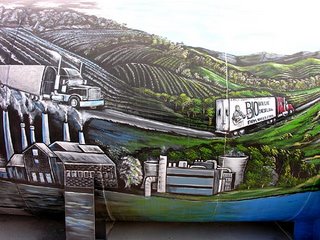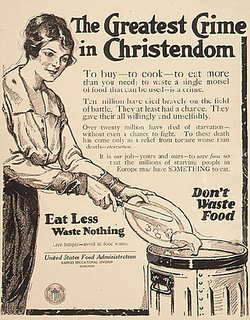 Above: Detail from one of the hand-painted tanks at “Carl’s Corner,”
Above: Detail from one of the hand-painted tanks at “Carl’s Corner,”a truck stop that sells biodiesel fuel in Texas, on Interstate 35
between Dallas and Waco. Carl (Cornelius) himself is a friend
of Willie Nelson, who first persuaded him to convert to biodiesel
rather than selling his business and retiring.
"We want to create an alternate fuel city,” says Carl now.
“Wind power, diesel power, solar power, soybeans, sunflower seeds,
mustard seeds -- all kinds of alternate fuels."
Listening to NPR this morning ... yes, I'm one of those people who wakes up to NPR! It's idling-engine speed is just right for me, to carry me out of wherever it is I've been while I was sleeping as I amble towards the kitchen to perform the kettle / water / cup / filter / coffee (very strong) ritual, and thence to my minimalist breakfast, maximalist shower, and the official start of my day.
Ahem.
Listening to NPR this morning, I was reminded how my brother Bill takes every opportunity to make people aware that George W. is NOT -- repeat, NOT -- a Texan. A wannabe, maybe -- imported from Connecticut at a vulnreable age and suffering from massive inferiority complex ever since -- but the man is not a Texan.
My brother is. I am too, deep down in my heart -- a fact that generally escapes people's notice till they get to know me. So is Ann Richards, a Texan. (God, I hope I have that woman's wrinkles when I'm her age, they are magnificent.) The Dixie Chicks. Willie Nelson -- he's got good wrinkles too. Kinky "Why the hell not?" Friedman, who's presently running as an Independent for governor on a "compassionate redneck" platform. Janis Joplin, Lyndon Baines Johnson ... and Billy Lee Brammer, his onetime press secretary, who afterwards wrote what most critics consider to be the only truly great American political novel, The Gay Place. (As in F. Scott Fitzgerald, not as in "we're here, we're queer.") Larry McMurtry, who I could go on and on about, and whose brilliant statement about what cowboys really represent I unfortunately can't locate right now.
Etcetera, on and on -- any Who's Who of Great American Eccentrics would have a disproportionate number of Texans on it, is my guess.
For the NPR story that provoked this sudden outburst of homesickness and Texan-identification, go here. The excuse for the story is biodiesel fuel -- who's behind it, selling it, how it's made, etc. It includes music, great characters, humor, a bit of science, and a charming drawl. The real story is about what lies deep in the heart of Texas. If we can ever rescue it from the trauma it's suffered at the hands of that Connecticut interloper and his pathetic toadies, and restore it to its rightful place, the healing of the entire "heartland" will surely follow close behind.
I'll be back.

